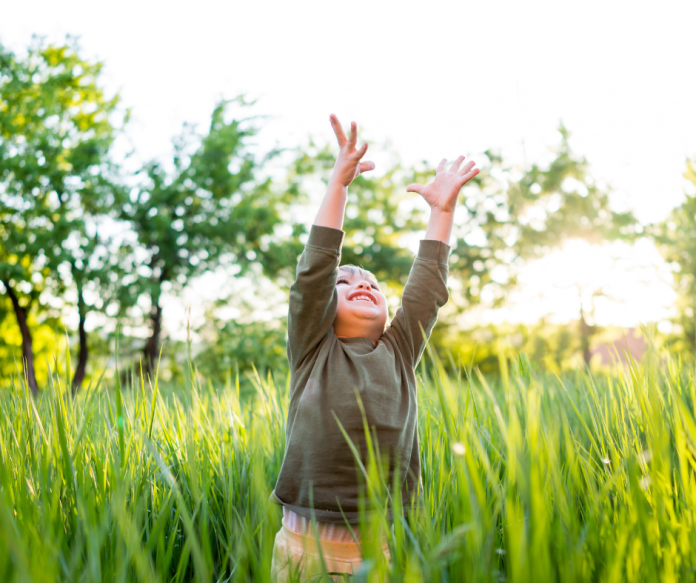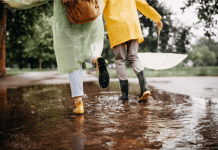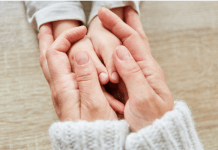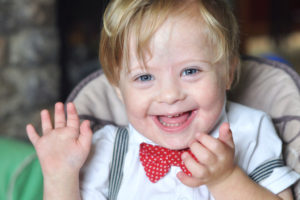Spring has officially arrived here in Pittsburgh! (If there’s more snow in the forecast, please let me remain blissfully unaware.) I was reminding all of my clients over the beautiful weekend to get their kids out into the sunshine. Exposure to sunlight not only helps mood and health, but also sleep! Here’s how:
Sunlight helps the body produce melatonin.
Melatonin is a hormone that the body produces to help you sleep. There are melatonin supplements out there, but I always recommend supporting the body’s natural production of melatonin rather than giving an artificial supplement (more about melatonin supplements). One of the biggest ways you can do this is to get exposure to sunlight.
When your body gets sun exposure, the skin produces a chemical called melanin. This chemical is needed later in order for the body to produce melatonin. Therefore, more sunlight equals more melanin. More melanin equals more melatonin to help you sleep!
As a side note, darkness is what tells the body to create melatonin at night. So, it’s important to get that sunlight exposure during the day so the body has what it needs to produce it. However, it’s just as important to then give the body darkness before bed to signal the brain to actually produce the melatonin. Screens and other bright lights at night hinder the body’s production of melatonin. (More about how light affects sleep)

Sunlight helps set your circadian rhythm.
We all have a circadian rhythm, or internal body clock. Your circadian rhythm is set by the natural flow of day and night. If you’ve ever traveled across multiple time zones, you’ve likely experienced jet lag. Your body can’t actually tell time to know that it’s different there, but it can tell that the rhythm of day and night is off. After a few days, your circadian rhythm usually sets itself to the flow of day and night in the new location. Therefore, the jet lag wears off.
When a person has a set circadian rhythm, the body knows when sleep is coming. As a result, it can create melatonin to prepare for sleep. The body also creates cortisol in the mornings to help you wake and go on with the day. So, you want a good circadian rhythm to help regulate the production of these hormones. Shift workers, for example, may have trouble sleeping because they often have to throw their body into a different rhythm, which throws off these hormones. Therefore, more sunlight equals a better set circadian rhythm. A better set circadian rhythm equals a balanced hormone production and better sleep!
Sunlight encourages physical activity.
There’s no doubt about it, sunlight makes you want to get outside! Being outside usually encourages more physical activity. Increased physical activity is linked to a shorter sleep onset and deeper sleep. Sleep onset is the amount of time it takes a person to fall asleep. Obviously, you want that to be as short as possible, especially for your kids! Physical activity during the day gets your body more ready for rest, therefore you can fall asleep quicker.
Physical activity also helps your body get into a deeper sleep, for the same reasons- it better prepares your body for rest. Therefore, sunlight exposure increases physical activity. Physical activity shortens sleep onset and strengthens deep sleep!
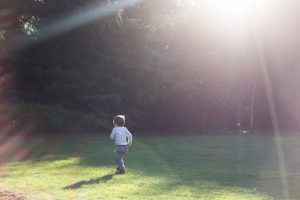
As the sun continues to brighten our days here in the ‘Burgh, I hope you and your children get out and enjoy it as much as possible. If for no other reason, do it so you can all sleep better at night!

Ashley Bell is a pediatric sleep consultant in Pittsburgh, and owner of Little Bell Sleep Solutions. She lives in the Shaler area with her husband and three children.



